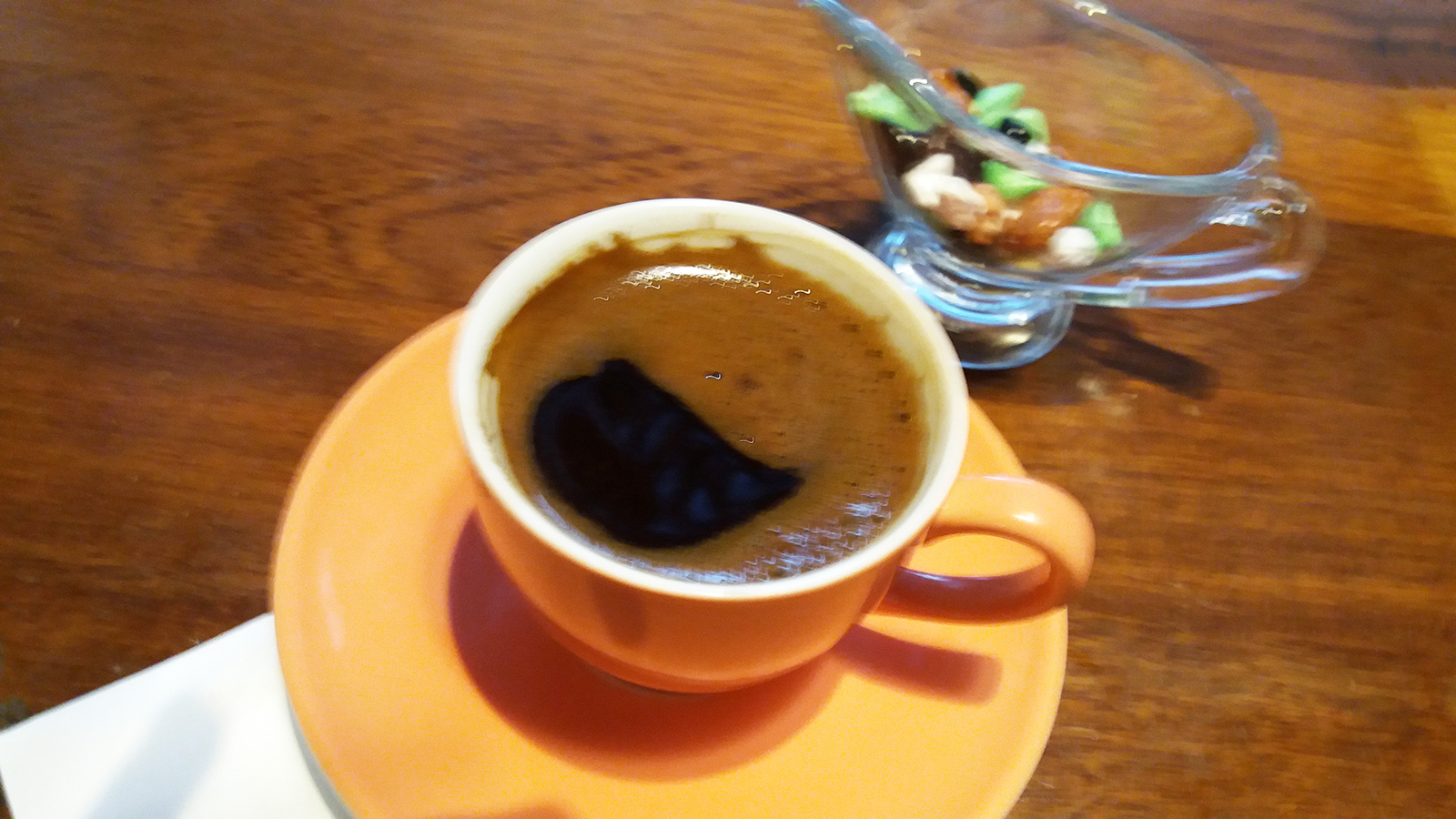
Nutrition Facts

Nutrition Facts |
|||
|---|---|---|---|
| Serving Size | |||
| 1 cup (8 fl oz) (237g) | |||
| Calories | 2 | ||
| % Daily Value * | |||
| Total Fat 0g | 0% | ||
| Saturated Fat 0g | 0% | ||
| Trans Fat 0g | |||
| Cholesterol 0mg | 0% | ||
| Sodium 4.7mg | 0% | ||
| Total Carbohydrate 0g | 0% | ||
| Dietary Fiber 0g | 0% | ||
| Total Sugars 0g | 0% | ||
| Includes ~g Added Sugars | ~% | ||
| Protein 0.3g | 1% | ||
| Vitamin C 0mg | 0% | ||
| Vitamin D 0μg | 0% | ||
| Iron 0mg | 0% | ||
| Calcium 4.7mg | 0% | ||
| Potassium 116.1mg | 2% | ||
| Phosphorus 7.1mg | 1% | ||
| *The % Daily Value (DV) tells you how much a nutrient in a serving of food contributes to a daily diet. 2,000 calories a day is used for general nutrition advice. | |||
I’m trying to lose weight. What to do with coffee?
It depends on the type of coffee you drink. A plain cup of brewed coffee has less than 5 calories — and no fat. But if you dress up your coffee with extras, whether at home or your favorite coffee shop, you also add extra calories.
See how many calories these extras can add to your coffee:
Sugar: 16 calories for 1 teaspoon (4 grams)
Heavy whipping cream: 101 calories for 2 tablespoons (1 ounce, or about 30 milliliters)
Half-and-half: 37 calories for 2 tablespoons (1 ounce, or about 30 milliliters)
Fat-free milk: 10 calories for 2 tablespoons (1 ounce, or about 30 milliliters)
When you’re at your local coffee shop, check out the nutrition information before you order. Some coffee drinks can have hundreds of calories.
Occasional indulgence is fine. But remember that when it comes to weight loss, all calories count — even calories in liquid form.





